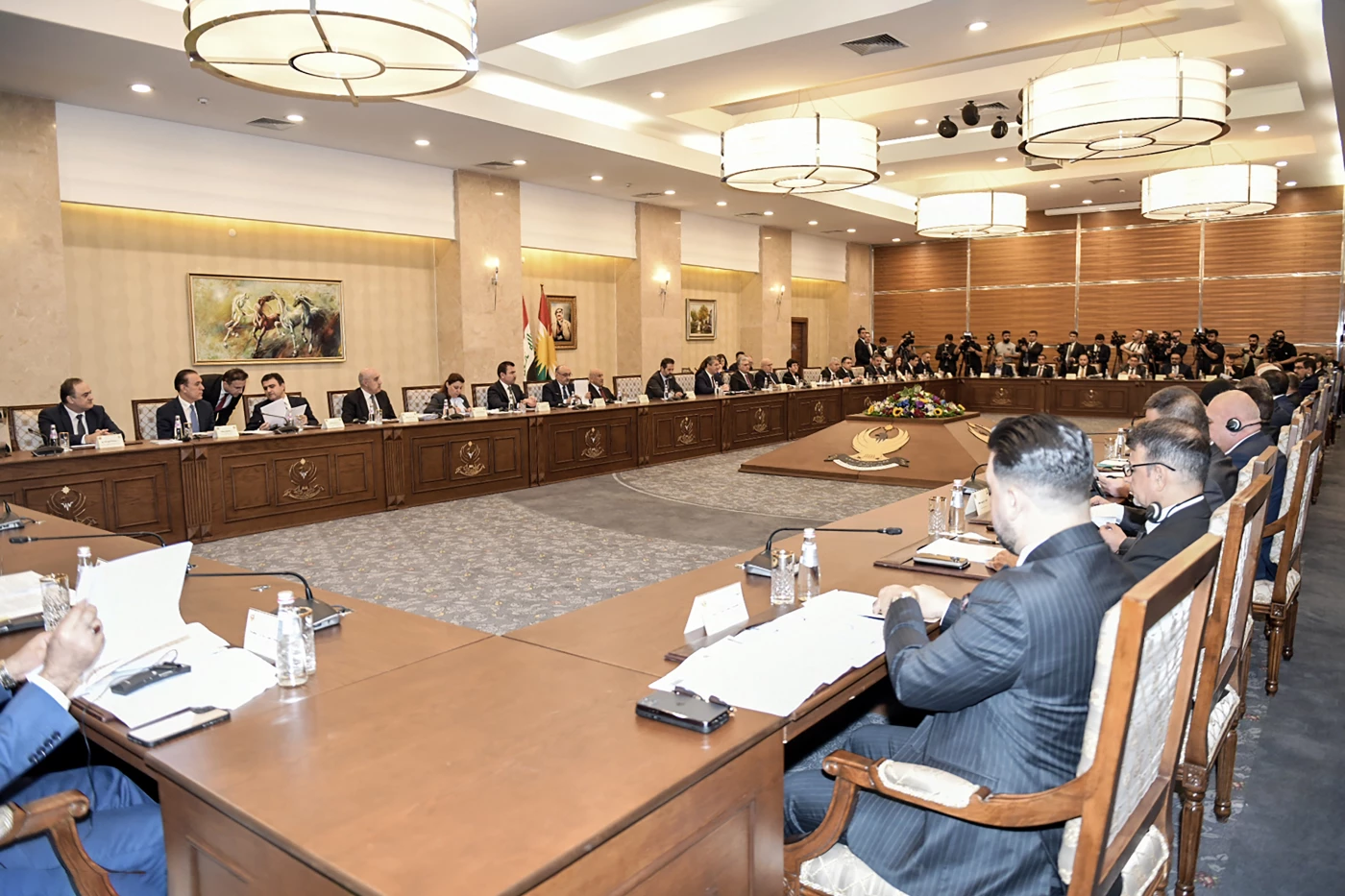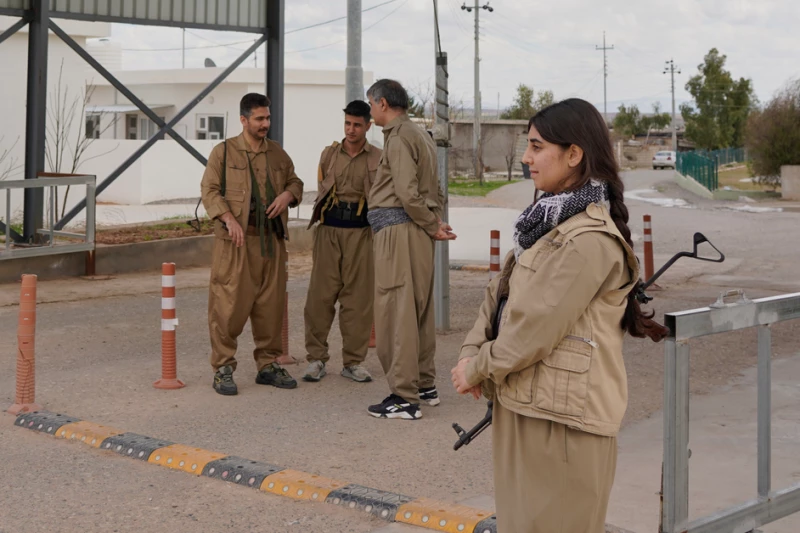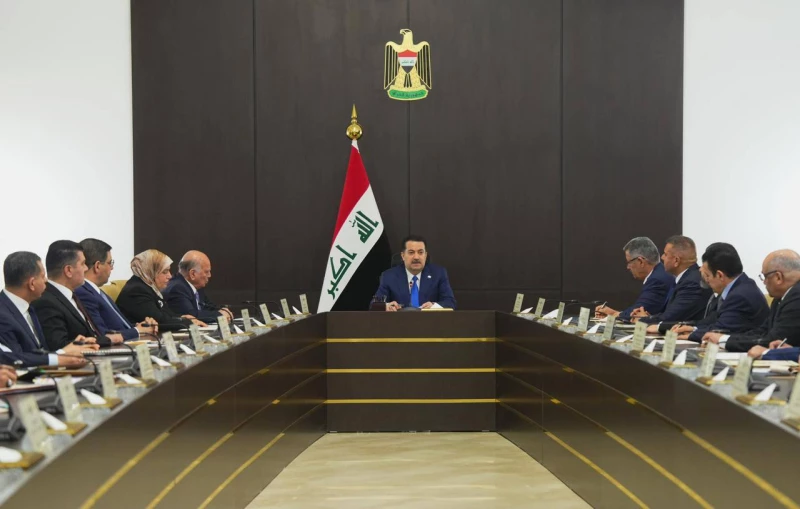ERBIL, Kurdistan Region of Iraq - The Prime Minister of the Kurdistan Region on Sunday told a high-profile Iraqi government delegation that Baghdad should deal with Erbil “in a just way” and according to the constitution concerning the latter's financial entitlements from federal funds.
The Kurdistan Regional Government’s (KRG) economic council headed by Prime Minister Masrour Barzani along with his cabinet ministers met with the Iraqi Ministerial Council for Economy delegation,led by Foreign Minister Fuad Hussein and accompanied by Finance Minister Taif Sami and several other ministers, in Erbil to discuss mechanisms to resolve impending financial issues of the KRG.
“If there is desire and will towards a resolution, resolving the problems will be easy and respecting the constitution and agreements must become a basis to resolve the bulk of the problems and disputes,” a statement from the KRG Council of Ministers quoted the premier as saying during the meeting with the Iraqi government delegation.
“The federal government should deal with all parts of Iraq in a just way and it should be the government of the entire regions and provinces. It should defend the rights of the people of the Kurdistan Region the way they advocate for the rights of the citizens of Basra and Baghdad," the prime minister said.
Iraq’s Foreign Ministry for their part said in a statement that the aim of their meetings with the KRG officials in Erbil, including PM Barzani, is to “reach an understanding between the federal government and the Kurdistan Regional Government concerning disputed topics, particularly financial and economic dossiers” while adding they “seek a peaceful solution”.
Erbil and Baghdad have for a decade now been at loggerheads over financial issues, notably salaries of the Kurdistan Region’s civil servants.
Erbil currently finances its domestic expenses from domestic revenues and its disputed federal budget share.
The past eight months have been extremely rough on civil servants from across the Kurdistan Region who have their livelihoods reliant on salaries being paid by the government.
After two months of delay, civil servants began receiving their July salaries last week. The issue had emerged after Erbil criticized Baghdad over sending an amount of money which it said was not enough to cover the full salaries of its civil servants. In response, Baghdad pointed out that they had sent an extra 600 billion dinars to the Kurdistan Region this year, claiming it was enough to cover July’s salaries with the KRG’s local income combined.
Years of conflict and unresolved issues between Erbil and Baghdad, and economic sanctions and pressure on Erbil by federal authorities, have pushed employees in the Region to live from paycheck to paycheck.
The KRG's financial crisis was exacerbated in the wake of the halt of Erbil’s oil exports following a court ruling on a dispute between Iraq and Turkey over the Kurdistan Region’s independent oil sales.
Exports of the Kurdistan Region’s oil through the Turkish Ceyhan pipeline was halted in March 2023 after Ankara lost a case against Baghdad in a Paris-based arbitration court. The case accused Ankara of breaching a 1973 agreement by allowing the KRG to start selling oil independent of Baghdad.
The Kurdistan Region previously exported just under half a million barrels of oil, including around 75,000 barrels from federal controlled fields in Kirkuk, on a daily basis through the Ceyhan pipeline, however ten months of halted exports has dealt a large economic blow to both the KRG and foreign oil companies working in the Region.
Over the past year, the KRG sent multiple delegations to Baghdad in a bid to resolve the issue of the civil servants salaries, however with oil exports halted, there was no materialization of the meetings, until now.



 Facebook
Facebook
 LinkedIn
LinkedIn
 Telegram
Telegram
 X
X


